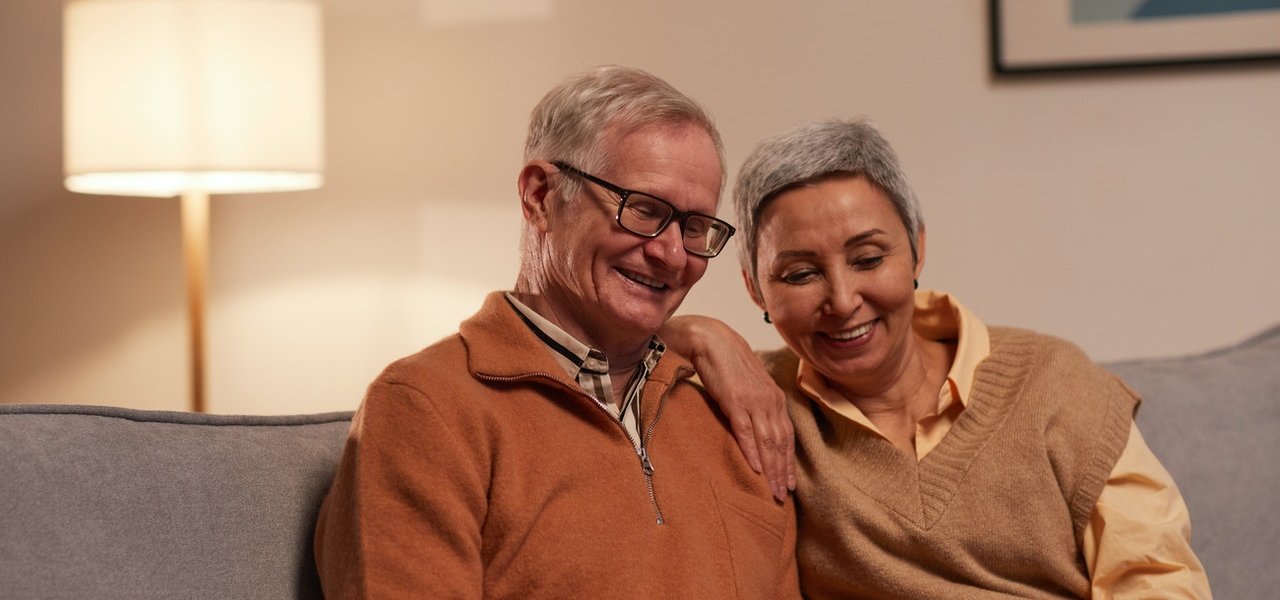The COVID-19 pandemic has brought with it many challenges for families.
With Australians over 65 years of age may be disproportionately impacted by loneliness and isolation as a result of the pandemic (1), it’s important that we provide support to those struggling during the pandemic.
How has COVID-19 affected older generations?
In 2020, as a result of COVID-19, the Australian government asked Australians over the age of 70, and Aboriginal and Torres Strait Islanders over the age of 50, to socially isolate to the ‘maximum extent practical’ (1).
While these measures were necessary and intended to protect older Australians from contracting the virus, it also carried serious risks for their mental and physical health.
A Sydney-based study reported that one third of older Australians living in the community experienced depression during lockdown (2).
One fifth also experienced heightened anxiety and psychological distress. Elderly people who were most at risk were those who felt lonely.
How can loneliness affect physical health?
Loneliness can have a harmful impact on physical health comparable to that of smoking and obesity. It has also been shown to decrease a person’s life expectancy (3).
Social isolation also increases sedentary behaviour, which may in turn increase the risk for dementia, immobility, mental illness, and other serious health conditions, as well as reduce a person’s ability to regulate difficult emotions (4).
The lives of older adults have been disrupted in three critical ways, each requiring immediate attention from health service providers in order for Older Australians to reconnect to their communities.
1. Loss of social connections
While this point may seem obvious, it is worth mentioning. The pandemic put an end to in-person human interaction almost overnight, and for older adults this included vital relationships with children and grandchildren. Difficulties navigating digital technology prevented some elderly Australians from even seeing their loved ones for extended periods of time.
Older Australians also lost regular connection with friends both individually and through community groups and activities.
2. Disruption of day-to-day life
Simple, instrumental tasks like shopping or banking became much less simple for many Older Australians as a result of the pandemic. This is due to the closure of some community and public transport services, concerns about the health risks of being in public places, and the need to transition to digital services.
Not only do these barriers present logistical issues, but they also disrupt the weekly routines that provide a sense of familiarity, certainty and rhythm, and the loss of human interaction these tasks usually provide.
3. Access to quality care and support
Prior to the pandemic, 3 out of 10 older Australians used aged care services. Since COVID-19 reached Australia, however, aged care service providers are reporting that older Australians are delaying or avoiding medical care and suspending their home care support.
On the other hand, mental health services are experiencing high demand and many older adults are encountering long waiting lists for mental health care.
Informal support has also been disrupted by the closure of community and social groups in a time when they are more important than ever.
Reconnecting Together: a program to support older persons’ mental health
Older Australians are important, and we need them connected to the communities to benefit it.
The WHO Director-General (NAME) put it best when he said, “Older people carry the collective wisdom of our societies, we need to work together to protect older people from the virus, and to ensure their needs are being met – for food, fuel, prescription medication, and human interaction.”
Early intervention is a critical step towards improving the wellbeing of older adults facing loneliness and isolation, and towards reconnecting them to their community.
Clear Health Psychology have received funding from the WA Primary Health Alliance to deliver a free service for older adults and their carers who are experiencing isolation or loneliness and are in need of additional support.
Clinicians in the program provide individual psycho-social assessment to determine each client’s unique needs, and link clients to appropriate support services in their local community. Clinicians are also able to provide free counselling support to clients who are otherwise unable to access psychological services.
If you, or someone you know, could benefit from this service, please contact the team at Clear Health Psychology by calling 6424 8177.
Through this important initiative, we are doing what we can to ensure that older adults are connected in meaningful ways to our communities to ensure that their needs are met, but also so that younger generations can continue to draw from their collective wisdom, resilience, and spirit.
References
1. Atkins, M., Baldassar, L. (2020) ‘COVID-19, Social Isolation and Ageing – CSI Response’.
https://www.csi.edu.au/media/uploads/csi_fact_sheet_social_covid-19_social_isolation_and_ageing.pdf
2. Strutt, P. et al. (2021), ‘Stress and Coping in Older Australians During COVID-19: Health, Service Utilization, Grandparenting, and Technology Use’, Clinical Gerontologist, DOI: 10.1080/07317115.2021.1884158
https://www.tandfonline.com/doi/abs/10.1080/07317115.2021.1884158
3. Holt-Lunstad, J., T.B. Smith and J.B. Layton (2010), ‘Social Relationships and Mortality Risk: A Meta-analytic Review’, PLOS Medicine, 7 (7), e1000316.
https://journals.plos.org/plosmedicine/article?id=10.1371/journal.pmed.1000316
4. Gerst-Emerson, K. and J. Jayawardhana (2015), ‘Loneliness as a public health issue: the impact of loneliness on health care utilization among older adults’, American Journal of Public Health, 105), 1013-19.
